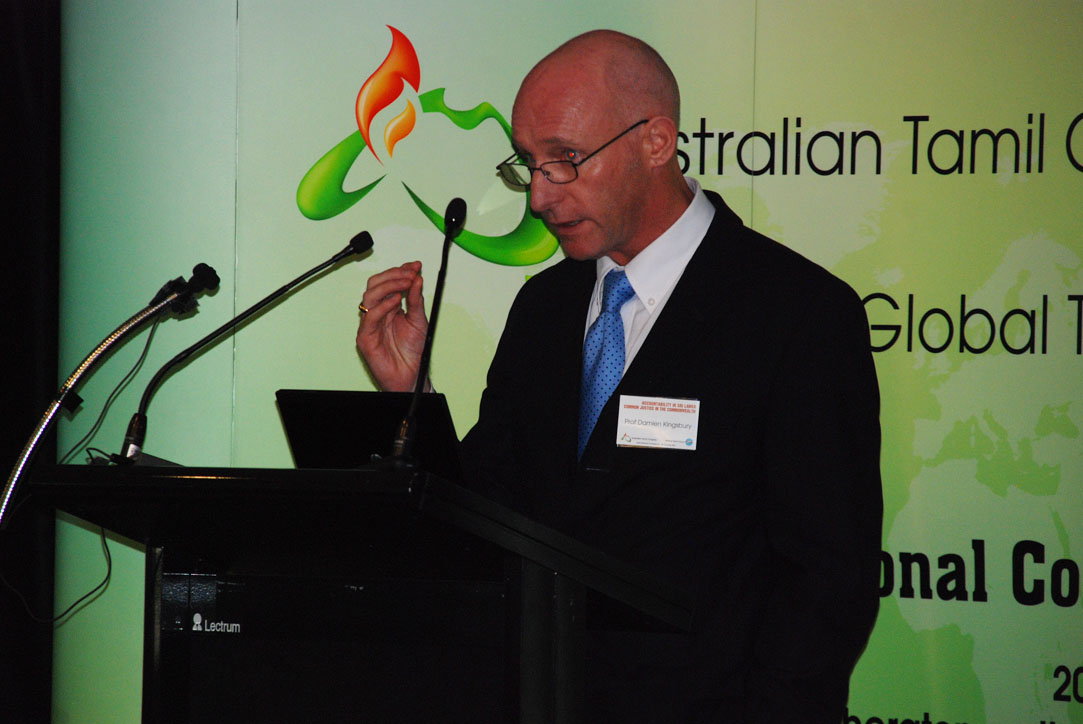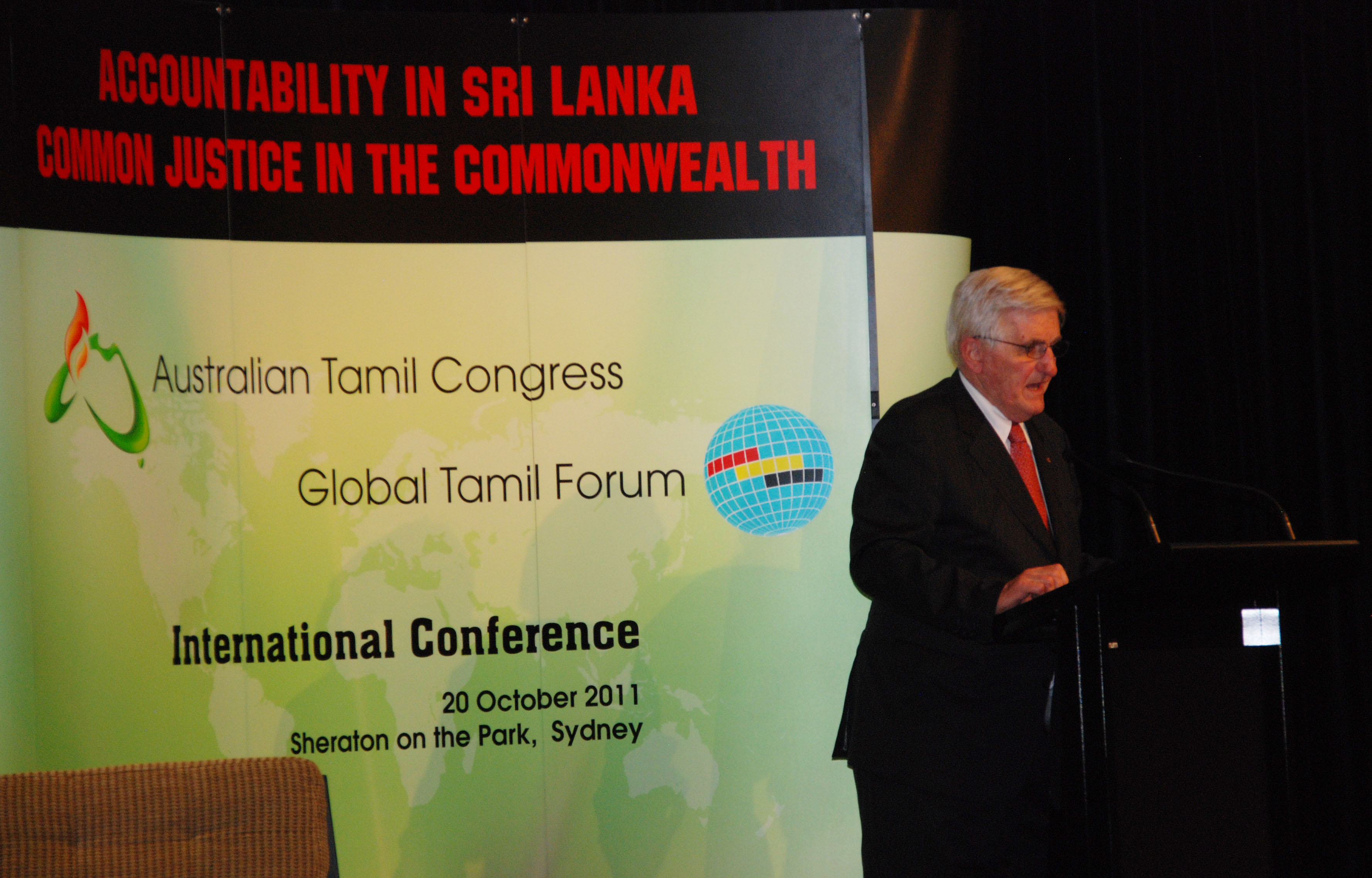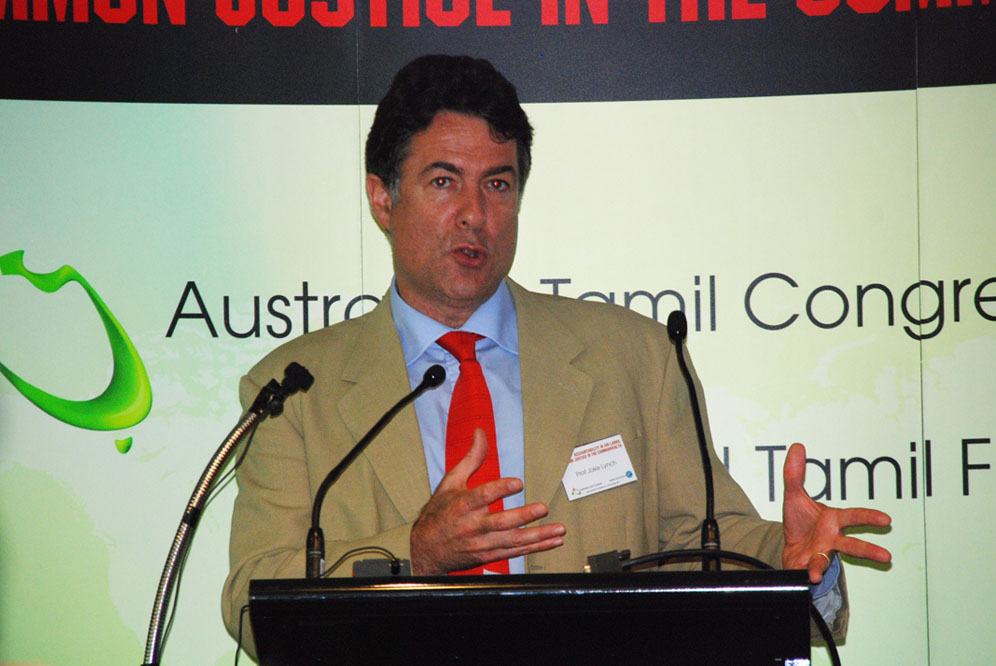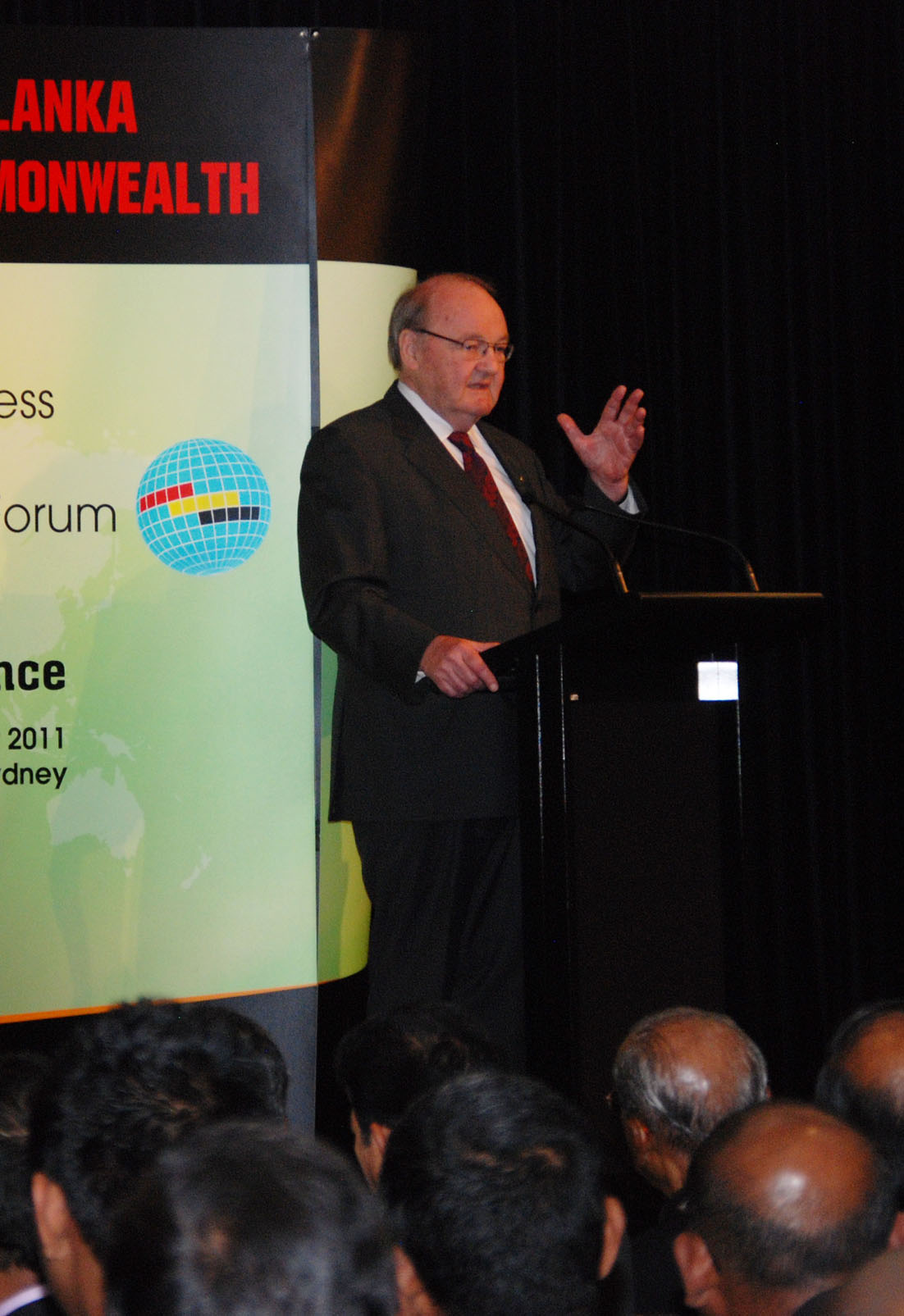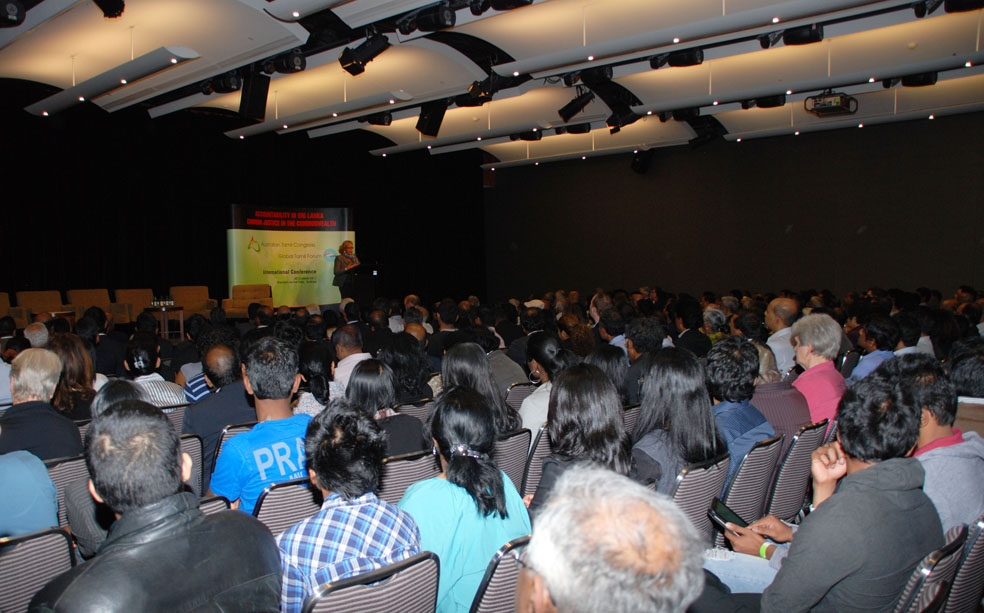The Global Tamil Forum and Australian Tamil Congress co-hosted an international conference in Sydney, reaffirming the role of the international community in pressure Sri Lanka to address human rights violations that occurred during the war on the island.
The conference, held on the 20th October in Sydney, was entitled “Accountability in Sri Lanka: Common Justice in the Commonwealth” and saw a vast array of distinguished speakers from all over the world, including MPs from Malaysia, South Africa, Australia and Sri Lanka.
Geoffery Robertson, an eminent QC, who was appointed by the UN Secretary General as one of the three distinguished jurist members of the UN’s Internal Justice Council and part-time appeal judge at the UN-backed court for war crimes in Sierra Leone was also in attendance, along with guests from Amnesty International (Graham Thorn - AI's Australia Refugee Coordinator, and Senthorun Raj - NSW president of AI Australia) and diplomats, including, Sisa Njikelana, an MP from South Africa's ANC (African National Congress).
Prof Suriyanarayanan of India, member of the National Security Advisory Board of the Government of India during 2008-2010, also spoke at the event, which recognised that “India must revisit its approach and strategy towards Sri Lanka.”
Other notable speakers included Lionel Bopage, former general secretary of the JVP in Sri Lanka who resigned from the party on principle as he disagreed with the party's approach to the Tamil issue; Professor Damien Kingsbury from the Schoool of International and Political Studies at Deakin University, and Associate Professor Jake Lynch, the director of the Centre for Peace and Conflict Studies at the University of Sydney.
Those who have witnessed first hand alleged war crimes and human rights abuses that took place were also present, including, Meena Krishnamoorthy, who was caught up in the No-Fire Zone and two Malaysian MPs, Manogaran and Ramakrishnan, who visited Vanni shortly after the conflict unofficially.
The conference was held ahead of the 2011 Commonwealth Heads of Government Meeting in Perth, the conference called for Sri Lanka to be denied privileges such as hosting the 2013 CHOGM and 2018 Commonwealth Games until the issues of war crimes and crimes against humanity were effectively dealt with. Furthermore, they called on the international community to “take all necessary steps to implement the UN Panel recommendations in its entirety”.
Amid the topics discussed were sessions on “National reconciliation on the basis of Justice and Accountability” and “Recognising identities and democratic rights of the peoples”.
The failure of international governments and institutions, such as the United Nations and Commonwealth, in “preventing this human catastrophe” - the deaths of tens of thousands of civilians in the final months of the war - was also highlighted.
Amongst those present were seven cross-party Members of Parliament from Australia, as well as Senator Lee Rhiannon from the Green Party and John Robertson, Leader of the Opposition in New South Wales.
Amongst the Australian MPs who attended were Laurie Ferguson (Labour Party - MP for Werriwa), Michelle Rowland (Labour Party - MP for Greenway), John Murphy (Labour Party - MP for Reid), Philip Ruddock (Liberal Party - MP for Berowra), Nathan Rees (Labour Party - Member for Toongabbie), and David Shoebride (Greens Party - Member of State Parliament, NSW).
In a joint statement the Presidents of the GTF and ATC, said that Sri Lanka had “made a mockery of Commonwealth Principles” and stated,
“What the Commonwealth of Nations believes in is commendable but can it really make the right of self-determination as a right of every community in the commonwealth?"
"It is our belief that the forthcoming CHOGM will address the issues pertaining to Sri Lanka and uphold its principles and become an organisation of relevance to the people it claims to protect and provide for and not simply state that it is an internal problem.
"The Tamil problem is not an internal affair."
Sri Lanka has come under increased pressure from Commonwealth members such as Canada and Australia to implement the recommendations of the UN panel of experts, and looks set to be discussed at the 2011 CHOGM in a few days time.

